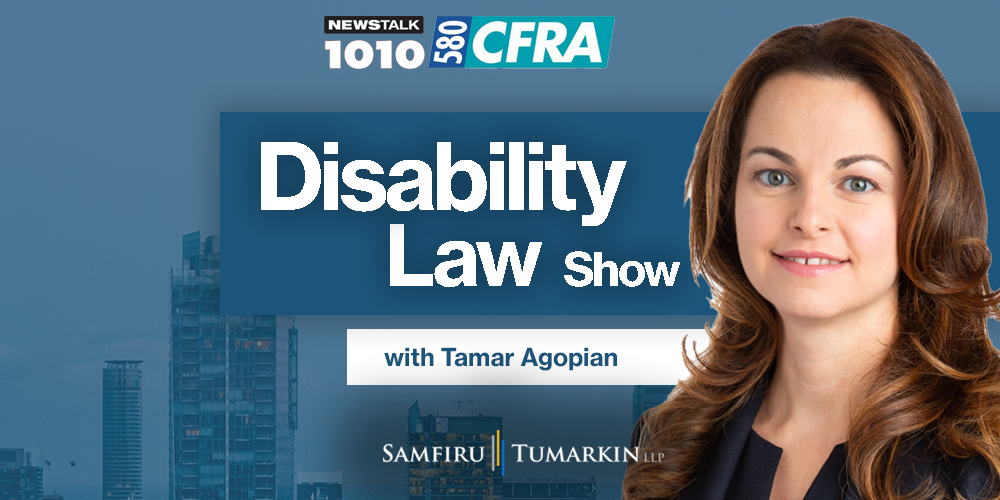Disability Law Show: Ontario – S4 E48

Episode Summary
Are you still covered for disability benefits if you resign from your employment? Disability lawyer and partner Tamar Agopian at Samfiru Tumarkin LLP answers this question and more on the Disability Law Show on Newstalk 1010 in Toronto.
Listen below to discover important information about your rights and a guide through the proper steps to take when your insurance provider cuts off your long-term disability or denies your insurance claim.
When you need a disability lawyer in Ontario, Tamar and her team can get you the advice you need, and the compensation you deserve.
Listen to the Episode
Show Notes
- The initial application for short-term disability then transitioning to LTD: At the end of the short-term period, some claimants experience difficulty in transitioning to long-term disability. In many cases, there are different insurers for short-term disability and long-term. It is important for claimants to realize the appeals process is rarely successful. Insurers are forced to come to the table when a legal claim, however, is filed.
- After a stroke, the claimant recovered but then regressed and quit employment: For most individuals, insurance coverage for disability benefits is through their employer and tied to employment. It is important for individuals to return to work only when they are cleared to do so by their treating doctors. Returning to work before a claimant is ready can often lead to a regression in health. Most disability policies contain a recurrence clause which allows employees who have tried to return to work and been unsuccessful, to resume their benefits.
- An employer changes insurance while the claimant is on LTD: A disability claim crystalizes and is ensured by the insurance company that was initially approved for long-term disability coverage. Claimants who are worried about a potential recurrence clause would speak to their original insurer regarding their benefits. As an individual, benefits should be continuous regardless of a change by the employer.
- Misrepresenting health history and coverage is considered void: Individual disability plans differ slightly from group insurance coverage plans. In individual policies, claimants will be asked for their health history in a questionnaire. Claimants should answer questions very carefully. The policy is issued and claimants pay the premiums. Insurers have a two-year period in which they can contest whether or not a valid policy was issued. Insurers will try to deny coverage on a technical basis within the first two years.




